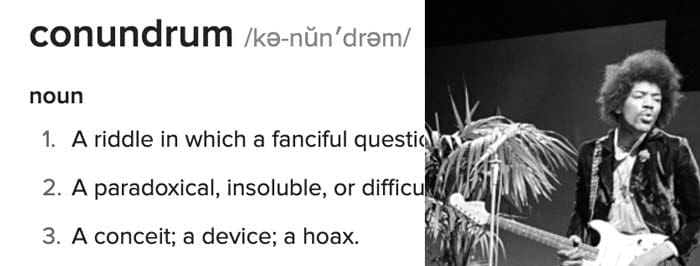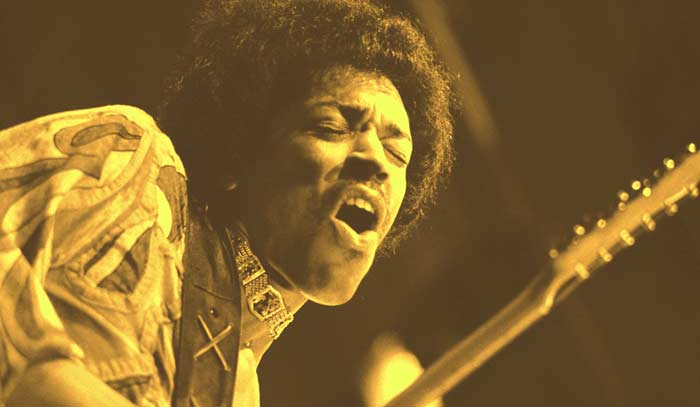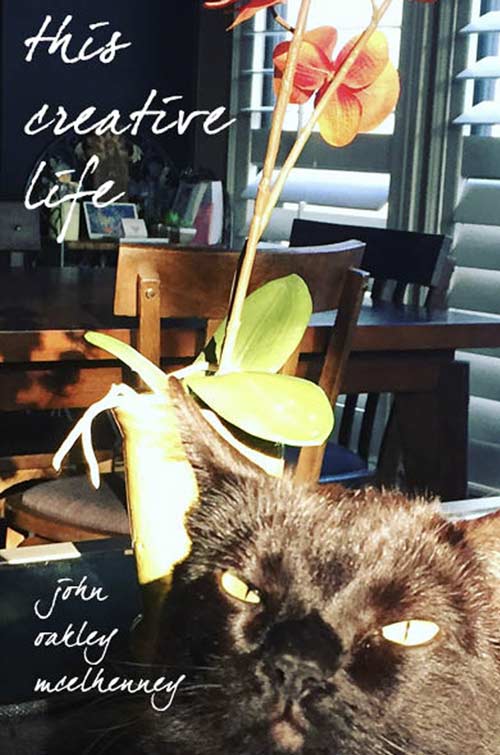As we lean into the idea of creative ai, we’ve got to look at how this theoretical advance would predict or explain the past. To see how *ai* can get creative, we’ve got to continually ask the harder questions. Questions about music, musical genius. About poetry and poetic genius. Can the creative ai be evolved from the tools and techniques we have? Or is there some element, a spirit if you will, that can unlock the human element of creativity?

What does it take for Adelle to pull our hearts into the fire with her? Vulnerability. *ai* cannot exhibit vulnerability. What did Jimi Hendrix bring to our experience of music? How did his artistry change everything? How did his inspiration feed the human talent that came after? Could a QuantumGPT predict a Doyle Bramhall II? Can sound a like *ai* generators make music that sounds like Jimi? Certainly, mathematically, they can. The tone is math. The notes are math. Even the words, if we extend Jimi’s genius to classics like Crosstown Traffic. Could the most powerful *ai* say five years into the future, write an original Jimi solo?
*ai* is regenerative. From all the notes Jimi has played, all the recordings of his music, all his lyrics, and the albums of his music that will continue to be released from his “vault” can a super-ai write an original solo that is more than the sum and extrapolation of all the parts he’s already played, actually create an original solo?
I’m of the mind, personally, that our human art is something *ai* can mimic but not generate. Yes, “in the style of Van Gogh can give us variations on a theme. But Starry Starry Night was a human expression. A vulnerability that an LLM simply cannot comprehend.
Do we need a *sadness* algo to apply across our hyper-connected data lakes? Is there a THC accelerant that can be added to the logical connections *ai* is using today? Does random mean creative? No. What about “sounds like” or “in the style of?” Again, I’d say no.
Adelle has already been done. In human form. All warts, mistakes, grace notes, and all. *ai* cannot have predicted or modeled an artist with the soul of Adelle. And I don’t think it’s (GOD) I’m hinting at. There is probably going to be a moment when the vulnerable plug-in is created that gives GPTs the ability to mimic loss and sadness. Today, we’ve got LLMs that can contain all the melancholy poems ever written, and still not produce one original work of poetry. And by original I mean, with a spark of life/joy/humanity. A first-grader can create more creative leaps than any *ai* to be developed in the next 5 years. (Let’s not get too far out, who knows what’s just a lightning stike away.)
Genius is human. Art is human. Language is math. *ai* is mathematician wizardry we’ve never seen before.
Will *ai* produce a genuine work of art? Unknown.
Will *ai* produce a number one hit song? Easy. Probably within 2024. Pop music today follows a simple and somewhat artless process. Often top songs are written by a committee rather than a singular artist spilling their stories out in song and lyrics. Melodies can be add random, and “sound like” and use these drum samples into limitless variations. All of them “like pop music.” Soulless drums and bass churned out by math. There’s no Adelle hiding in the routine of number one singles written by *ai.* Or the SWE super producers who go by dj names. There may be a lot of notes, a lot of words, and a voice modeled after Adelle, but the Adelle, or Jimi, plugin do not exist.
It’s going to take a disruptive process that we haven’t found yet. It’s going to take more than all the power and vision behind Rachael in Blade Runner to give us a near-human art. She was as close as we’ve seen, of a replicant who didn’t know she was a replicant. Her deep memories gave her an illusion of human birth and human history. Today, our *ai* has no memories. And no human artistic leaps or filters to repack and reprocess the repositories of data.
Jimi died when he was 27. His influence, even music being released 30 years after his death, is part of our evidence of his genius. A genius that *ai* can mimic and yet not predict. *ai* can’t leap out of the logical box we have designed for it. Something new and revolutionary needs to happen, before Rachael becomes sentient.





